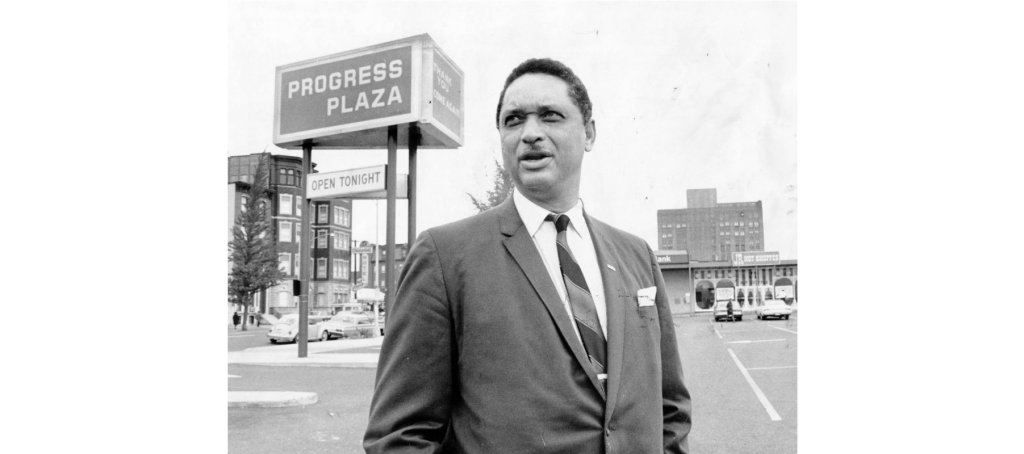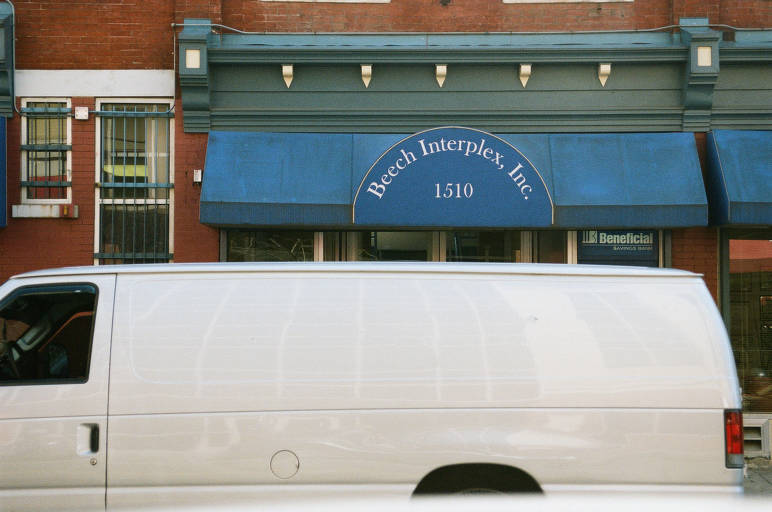When Natasha Graves launched her business VacayAbility in February, she couldn’t have known a month later the United States would be in the midst of a pandemic.
“It really required an entire reconfiguration of my original business model,” said Graves, who scrambled to cut and redistribute her business budget in March when the pandemic hit.
VacayAbility is a user-generated website first conceptualized by Graves while she was a student at Temple University. Graves, a 2018 business administration alumna who suffers from multiple chronic disabilities, created VacayAbility after finding it difficult to locate reliable information on disability resources at her travel destinations.
As COVID-19 sweeps the nation with a stubborn persistence, Black small business owners like Graves are grappling with a tanking economy.
With the travel industry nearly non-existent due to nationwide and international travel restrictions, Graves has been forced to turn to alternative business strategies like posting biweekly blogs which allow her viewers to virtually explore different travel locations. With this approach, Graves hopes to give her business a fighting chance.
A history of endurance
Perseverance and adaptability have long been necessary qualifications for Black business owners in North Philadelphia.
A notable testament to this was Reverend Leon Sullivan, who in 1968 founded the Sullivan Progress Plaza at the corner of Broad and Oxford streets as the first Black-owned shopping center in the U.S., according to the plaza’s website.
Peer to civil rights leaders like Martin Luther King, Jr., Sullivan passionately pushed the concept of Black ownership and entrepreneurship as a prominent activist and religious leader in North Philadelphia, WHYY reported.

Using funds crowdsourced from members of the Zion Baptist Church, Sullivan launched the plaza, which today remains under Black ownership and houses the Fresh Grocer supermarket and several other tenants.
From the 1960s to today, the economic health of North Philadelphia has fluctuated greatly, said Larry Griffin, who has spent the last 19 years as treasurer of Beech Interplex, a community development financial institution whose mission is to improve economic health and opportunity in North Philadelphia.
The neighborhood saw the devastation of the Columbia Avenue Riots in 1964, weathered the 2008 financial crisis and has continued to feel the impact of Temple’s growth and dispersal into the neighborhood, Griffin said.
But the COVID-19 pandemic represents an unprecedented threat to Black-owned businesses, Griffin added.
In June, the National Bureau of Economic Research released a report finding that as of April, the number of Black-owned businesses decreased by 41 percent, from 1.1 million to 640,000 due to economic hardship amid the pandemic.
Griffin has seen North Philadelphia’s ups and downs but said the long term effects of the COVID-19 pandemic could be “devastating” for the local economy.
Unequal relief
To help provide relief for small businesses, the federal government signed the Coronavirus Aid, Relief, and Economic Security Act, a sweeping relief package totaling $350 million dollars under the Paycheck Protection Program on March 27. The program provided businesses with up to eight weeks of cash flow assistance through loans backed by the Small Business Administration.
Despite the massive amount of aid promised through it, the program has failed to reach many Black business owners, the Philadelphia Inquirer reported.
The distribution of PPP funds was primarily delivered through large banks, which processed loans for existing clients and in return earned fees based on loan size, according to a schedule set by the Small Business Administration.
This meant, however, that only those with established relationships with traditional lenders received PPP funding quickly. Large banks were also incentivized to process larger loans, which were more likely to be from their well-established existing clientele, Forbes reported.
This requirement, in addition to crushing demand, left millions of small businesses owners ineligible or unable to receive any PPP relief funding, said Maura Schenker, director of Temple’s Small Business Development Center, which uses federal funding to provide one-on-one consulting services to small businesses in the neighborhood surrounding Main Campus.
Difficulty accessing PPP funding was exacerbated among Black-owned businesses who historically have fewer relationships with traditional lenders as well as emergency cash on hand, Schenker said.
“These relief measures are not creating disparities, because all of these already existed before the pandemic,” Schenker said. “It’s really just spotlighting them.”
Another obstacle to receiving funding is many Black-owned businesses operating in what is called the “gray economy” where they may not be fully licensed or tax compliant. In economically disadvantaged areas with fewer employment opportunities, turning to the informal economy can sometimes be the only option for individuals trying to support themselves, Schenker added.
“Take someone cutting hair out of their house, or selling baked goods from their home by word of mouth,” Schenker said. “Most of these businesses were completely excluded from federal relief funding due to their lack of formal licensing or tax compliance.”
In June, CDFIs across the state, including the Beech Interplex, successfully lobbied for an additional $225 million in state-controlled CARES funding to go to historically disadvantaged businesses, with $100 million of the package specifically set aside for Black businesses in traditionally underserved communities, Griffin said.
Yet of the $225 million available, the state received $800 million worth of applications. And with the fate of a second federal relief bill still being debated by Congress, it remains unclear whether small businesses will see another round of funding, Schenker said.
The reasons Black-owned businesses struggled to access federal funding during the pandemic points to larger systemic inequities that have long been a part of North Philadelphia’s economy, Schenker added.
“These relief measures are not creating disparities, because all of these already existed before the pandemic,” Schenker said. “It’s really just spotlighting them.”
Schenker cites socioeconomic barriers, institutional racism and “decades of a holistic system which works against minority populations” for the increasingly clear disparities between Black- and white-owned businesses.
Both Schenker and Griffin attest that one of the largest challenges associated with starting a business is access to capital.
“When I started at Beech, there were only three banks in the area, and mind you that’s for 100,000 people living between Fairmount and Lehigh avenues,” Griffin said.
In addition to the lack of traditional lending institutions in North Philadelphia, many Black entrepreneurs face disproportionate obstacles in providing the collateral necessary to obtain a loan, he added.
When attempting to get a loan, a bank will look at assets and typically require some form of collateral, oftentimes property, in an attempt to ensure their repayment, Schenker said.
“With homeownership tending to be an intergenerational wealth builder, you can see how the Black community has been shut out of a major source of wealth and potential collateral in pursuing business ownership,” she added.
A 2017 report by the Federal Reserve found Black Americans were turned down for loans double the rate of white Americans, and today, 73.7 percent of white families are homeowners compared to just 44 percent of Black families, according to a June study by Redfin real estate brokerage.

Finding ways to stay afloat
Despite the pandemic and the economic difficulties faced by Black entrepreneurs in North Philadelphia, Salim Weldon, co-owner and founder of Whimsicle Gourmet Fruit Pops, is determined to keep growing his businesses.
Weldon started Kensington-based Whimsicle with his wife, Tonae Simon, in 2012 with the idea of creating a healthier dessert alternative for their children. Their fruit pops are made of organic produce with no refined sugars or high fructose corn syrup.
With the majority of Weldon’s revenue generated through catered events, Whimsicle struggled when the COVID-19 outbreak forced the cancellation of spring and summer events he’d cater, like corporate functions and weddings.
But Weldon leveraged his social media presence and connections to other city business owners to keep Whimsicle financially sound, even amid the pandemic. While in quarantine, Weldon has started tie-dying shirts and designing other apparel to sell while Whimsicle’s sales were down.
Tahir Hightower, owner and founder of entertainment agency OffTheTopEntertainment, based in Nicetown, has also felt the effects of the pandemic. Hightower created his own sneaker and clothing brand, Malfeasance, through the agency.
When the pandemic first hit in March, he faced major shipping disruptions to his sneaker business, which manufactures in Italy, which at the time was an epicenter of the outbreak, Newsweek reported.
Despite setbacks with shipping, his sneaker operations are stabilizing, Hightower said.
In recent months, nationwide protests following the police killing of George Floyd have put a renewed focus on systemic racism and inequality, as well as the importance of supporting Black-owned enterprises, according to Marketplace, a business news site.
Social media posts urging support for Black-owned businesses have exploded and new digital marketplaces showcasing exclusively Black-owned products and services have been widely circulated, the Associated Press reported.
“It’s simple,” Weldon said. “Patronizing Black-owned businesses as well as promoting them is the main thing that will mitigate the losses we are taking during this pandemic.”